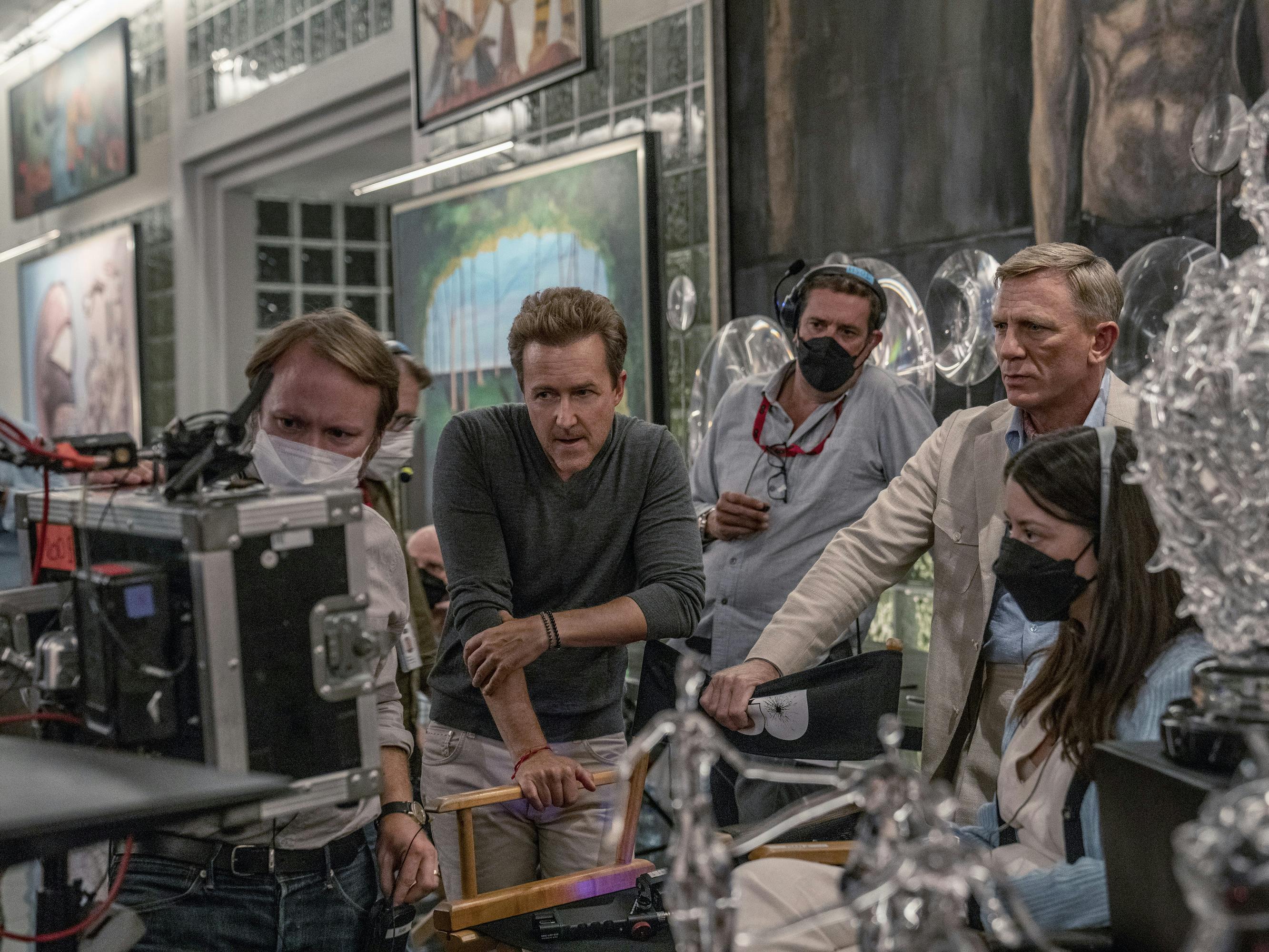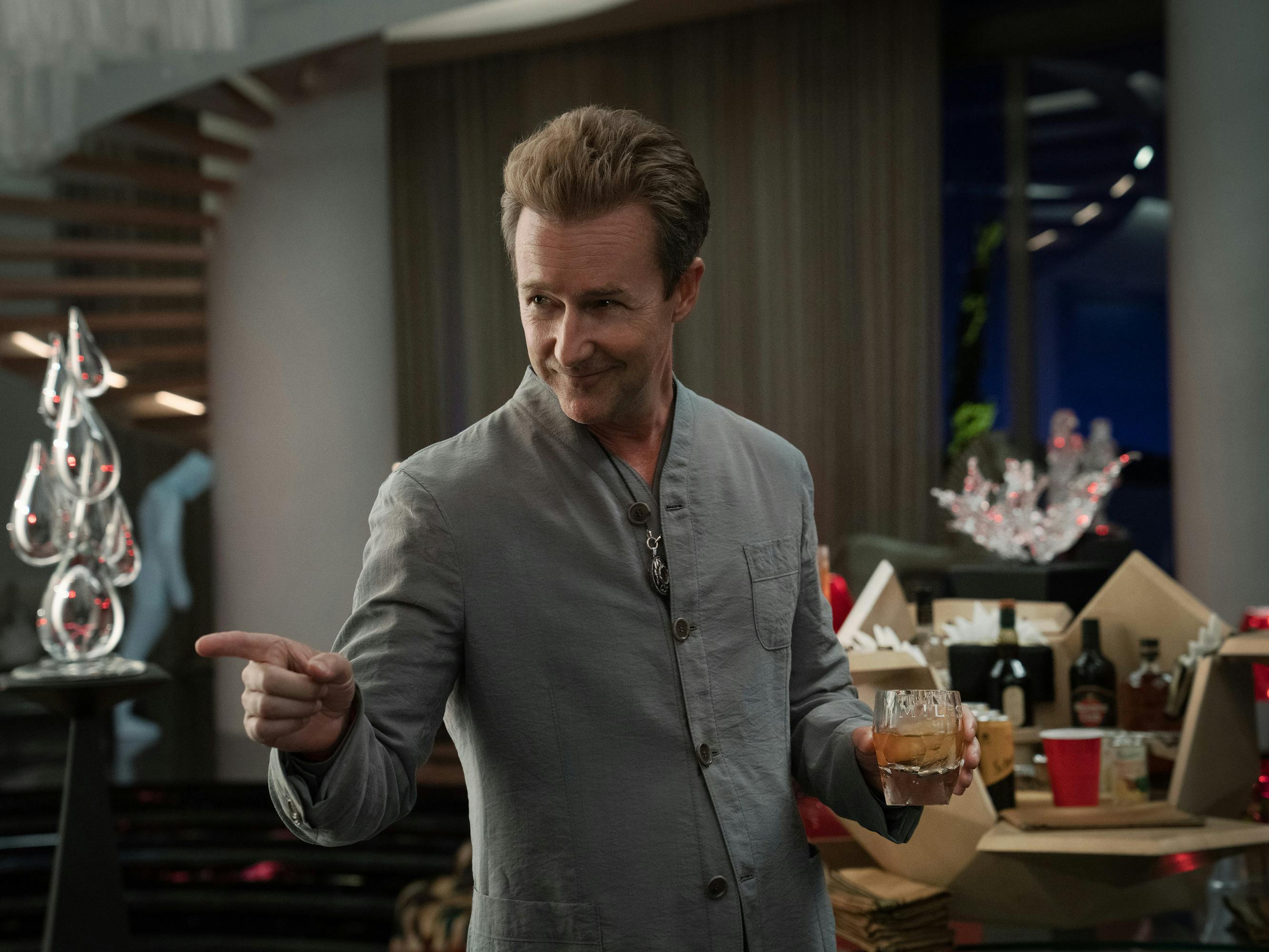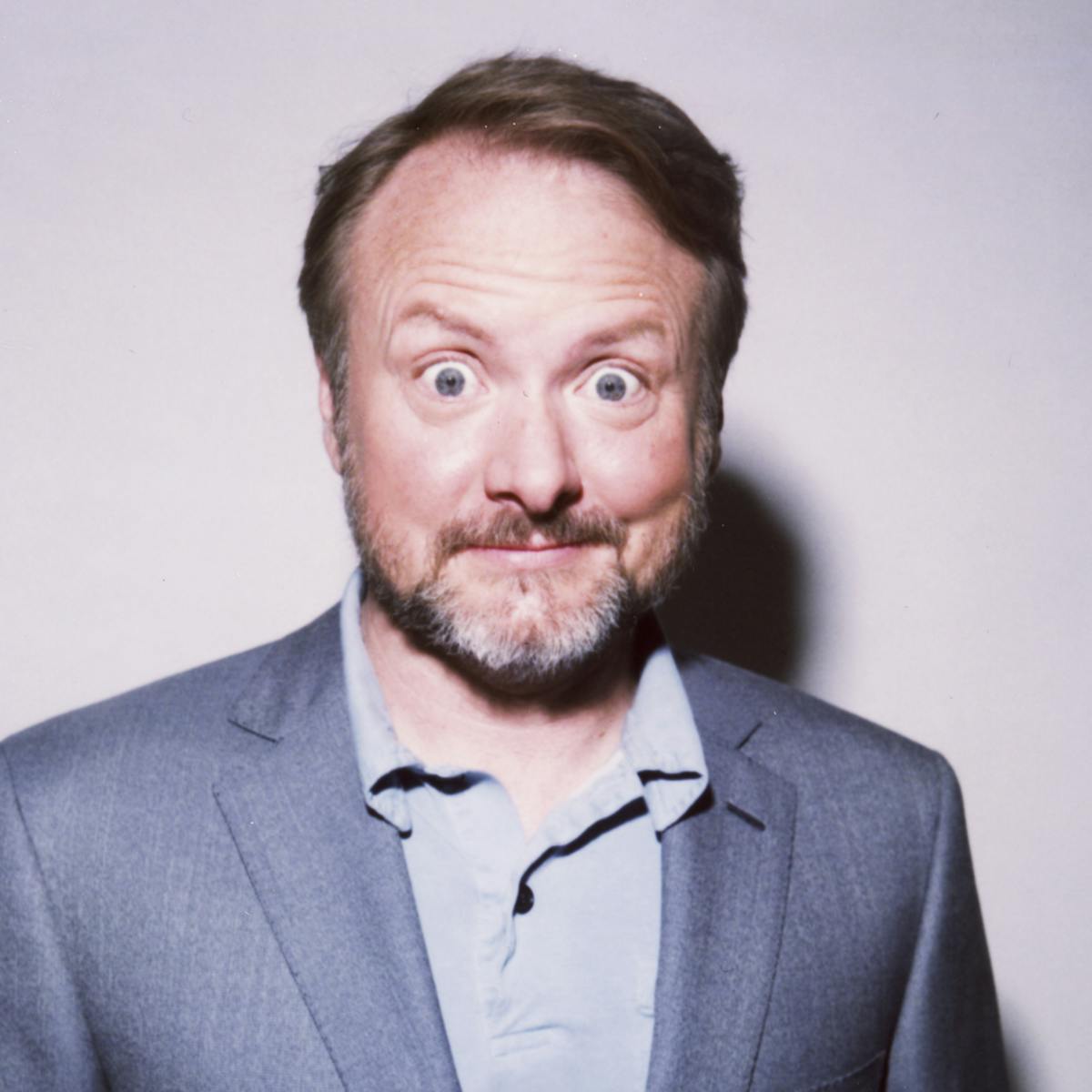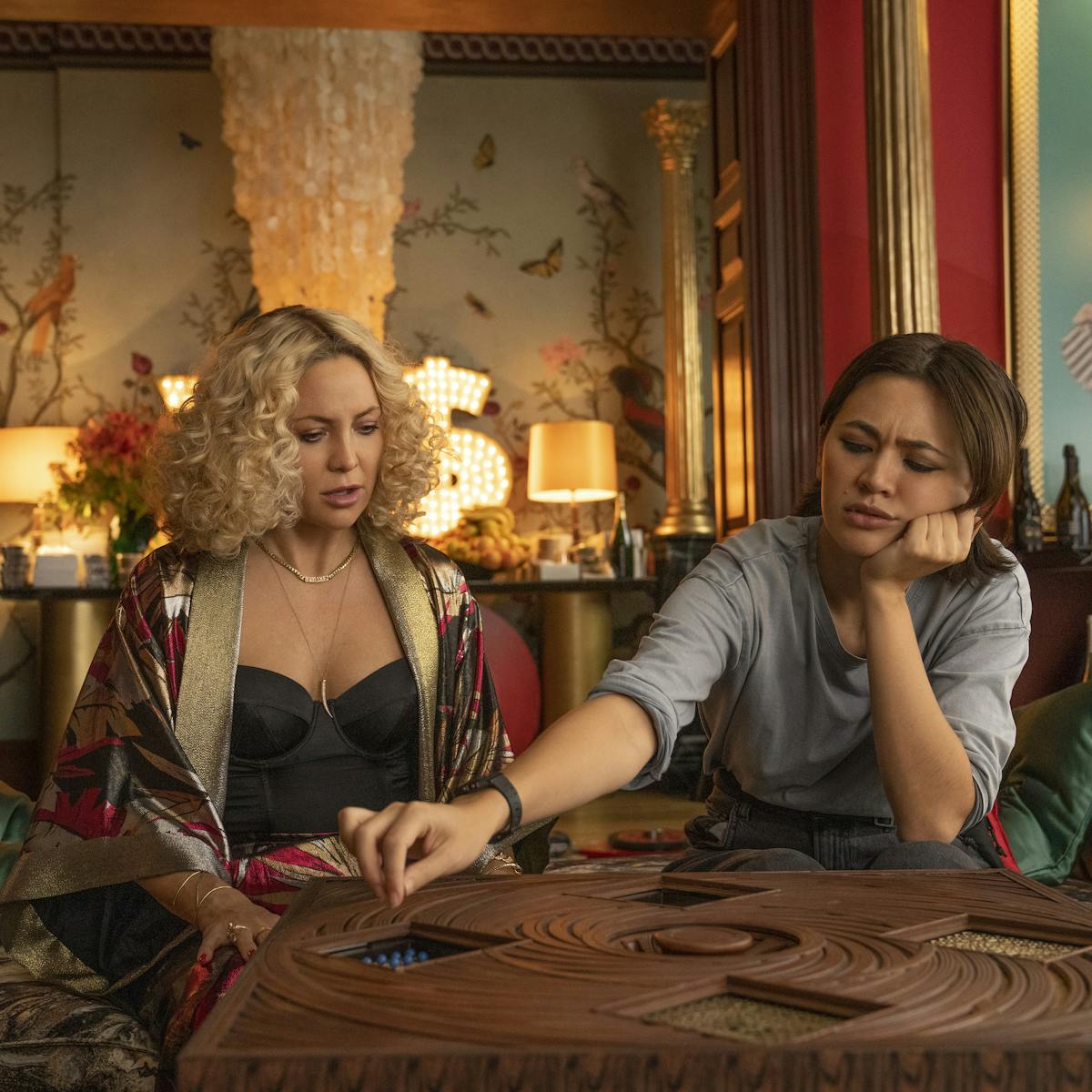When Oscar-nominated writer-director Rian Johnson was setting out to make Glass Onion: A Knives Out Mystery, the sequel to 2019’s blockbuster hit Knives Out, he knew he would need a masterful actor to play billionaire tech mogul Miles Bron opposite Daniel Craig’s Southern sleuth Benoit Blanc. An entitled entrepreneur whose outsized ego is every bit as inflated as his brimming bank accounts, Miles becomes the true catalyst for the new whodunit when he welcomes an eclectic group of friends, and Blanc, to his private Greek island to participate in an elaborate murder-mystery game. Once someone is actually slain inside the confines of Bron’s villa, however, things take an unexpectedly grim turn.
Three-time Academy Award nominee Edward Norton was only too happy to take a stab at the role. “To say that right now in American life there’s a rich field of inspiration to pull from for Miles would be an understatement,” Norton says of the real-world influences that helped him shape the memorable character. “I hope [audiences] will spot different aspects of people they’ve read about in the mix.”
Norton is imminently watchable in the love-to-hate-him role, holding the screen alongside a stellar ensemble that includes not only Craig, but also Janelle Monáe, Kathryn Hahn, Leslie Odom Jr., Jessica Henwick, Madelyn Cline, Kate Hudson, and Dave Bautista. But to be fair, Norton has always been watchable, in any part. After cutting his teeth on the New York stage, he rocketed to stardom with his acclaimed turn in the 1996 thriller Primal Fear, only to parlay that early success into more arresting work in a variety of high-profile films, including 1998’s American History X, 1999’s Fight Club, 2014’s Birdman or (The Unexpected Virtue of Ignorance), and a series of projects with auteur Wes Anderson: 2012’s Moonrise Kingdom; 2014’s The Grand Budapest Hotel; 2018’s Isle of Dogs; and 2020’s The French Dispatch. He also directed, wrote, produced, and starred in 2019’s Jonathan Lethem adaptation, Motherless Brooklyn.
The veteran performer had for years been keen to work with Johnson — Norton was a fan of the filmmaker’s 2005 debut Brick — and he was ready to accept the Glass Onion role virtually sight unseen. Once he made the trip to Greece to shoot the film, Norton was further delighted by the rapport he felt on set, with the writer-director and his fellow cast members. Bubbled together on location, the actors formed a tight bond that Norton likened to a summer repertory theatre troupe. “A lot of that spirit of silliness and mirth and satire and physical comedy that comes across was really because we were having a great time,” says Norton.
An edited version of the conversation between Smith and Norton follows.

Rian Johnson, Edward Norton, Daniel Craig, and Glass Onion crew members
Krista Smith: When I saw you in this film, I couldn’t imagine anybody else playing this character. Talk to me about why you wanted to play Miles and what it was like working with Rian.
Edward Norton: My two abiding reasons for doing this film would be Rian Johnson and Rian Johnson. I love Rian’s stuff. I’ve always loved it. I met him in New York not long after Brick. I’m talking 23 years ago or something. We talked about noir films. I knew we loved the same kind of stuff. I loved his vibe. Everything he’s done just has everything I love. It’s got precision; it’s smart. It’s visually terrific. I hoped something would come along [where we might work together]. I was on the other side of the world when he called me [about the role in Glass Onion], and I just immediately was like, “Okay.” He was like, “Well, you should read it.”
And what did you think?
EN: What Rian does is he takes the conventions of the form and makes it in the now. He has his detective, but because it’s laced through with these jokes about family politics and the Trump era and stuff like that, it adds something to it — you laugh because it reflects our moment. With Miles, my character, and Andi, Janelle’s character, in particular, he stuck a fork into dynamics that we are seeing today — a certain class of tech illuminati, not to say douchebags, but a certain species we’re seeing emerge in American life. We’re also having conversations about appropriation. These are all serious subjects, but he nested them inside this really frothy, hilarious thing in a way that I loved.
From the minute I read the script, literally until this morning, Rian and I send each other magazine covers or articles, and we keep saying, “See, it’s everywhere!” this idea of disruption and the way that certain types of people take credit away from other types of people. I loved that without making it heady, without making it preachy, he found a great satirical way to lace the moment that we’re living in through this delightful and comedic mystery. That’s hard. You have to be really pitch-perfect to do this kind of movie, but have it be all the more entertaining because it has just a little sauce, a little zest of the zeitgeist.
Yeah, the film really touches on politics, social media, cancel culture, all of it. It’s genius.
EN: It’s like a souffle, and Rian’s like a chef. He’s able to get all that in there and make sure that it levitates and doesn’t collapse. I really admire that about him.

Miles Bron (Edward Norton) and Whiskey (Madelyn Cline)
You had some great scenes with Daniel Craig too. I love when Miles and Benoit Blanc square off against each other.
EN: Blanc has become almost like this iconic thing, but watching [Daniel play him] is such a delight. He is so funny. Rian and I laughed a lot. We had one moment that I particularly got a kick out of — it’s the moment where my character becomes certain that the murderer is coming for him. He really loses his shit and runs to Blanc for help. We didn’t really talk about it, but we got this thing going where sounds are making me flip around. I grabbed him from behind around the waist, and Daniel did this thing where he’s looking over one shoulder and I go the other way. He goes that way, and I go the other way. He spins me and slaps me. I felt like [what] we were doing was Charlie Chaplin-esque. It was a physical comedy that you don’t really get a crack at anymore. He was so damn good at it. The whole thing was just a hoot.
What did you pull from to create Miles? I loved the bit with the guitar.
EN: The guitar is fun. Right in the beginning, Rian and I were looking for something [that could help define Miles]. In Midnight Cowboy, the first thing Ratso Rizzo [played by Dustin Hoffman] says to Jon Voight’s character when he sees him at the bar is “I like your shirt. That’s a colossal shirt.” I mean, I’m done. There’s something you get about the guy. Rian and I were like, Okay, Miles is sitting on the beach, waiting for his friends. What is it? He presents to Kate [Hudson’s] character [Birdie Jay] that this is the guitar that [Paul] McCartney wrote “Black Bird” [on] — you’re like, Okay, he bought this at auction or something. I said to Rian, “What if the next person he sees, he just drops that guitar?” We started cracking up. That was it. Once you see that it’s not just that he would buy McCartney’s guitar but that he would toss it — now everything you need to know about him, you know.
Certainly. It was very joyful watching Miles and just watching all of it unfold.
EN: [Costume designer] Jenny Eagan might be the M.V.P. on the whole film. The costumes are so funny. Without naming names, there’d be this and that person in the headlines, and I would just screenshot things and send them to her and go, “Those pants.” It was a lot of fun.
Before we talked, I was looking back at everything you’ve done. After college, you came to New York to be an actor. Before that, you had written to Edward Albee about one of his unproduced plays. I just love the chutzpah. It was not an email. It was a letter. You had to find the address. You had to mail it.
EN: 1992 or whatever that was.

Miles Bron (Edward Norton)
Then he actually ended up coming to see you in Lovers.
EN: I haven’t thought about this in a while. He was one of the great American writers in any form — Who’s Afraid of Virginia Woolf? and The Zoo Story and so many great plays. I don’t remember why — maybe friends and I were thinking about if we rented a theater downtown and put up our own play, what we could do that would be exciting — I found out that he’d written this one-act play that had never been produced. It shocked me that something that Edward Albee wrote hadn’t been produced; I couldn’t really process why that would be. I thought, Well, maybe he’d let us do it. I looked him up in the phone book, if you can believe that. It said, “Edward Albee, 14 Harrison Street,” which is in Tribeca . . . I wrote him a letter about this play, [saying that] my friends and I would like to produce it.
Then I wrote, “P.S. I’m performing in Brian Friel’s Lovers on East Fourth Street. If you can come, I would be so thrilled.” I got a letter back from him about 10 days later, very lovely, really responsive to the things I’d written about the play. He said, “Based on what you’ve written here, I would feel completely comfortable with having you produce it, but I’ve just agreed to do a full season of my work with the new Signature Theatre Company that’s going to be a part of an evening of one-acts. Maybe you should audition.” Then he said, “If I can come and see your play, I certainly will try to make time.” I thought, Well, I’ll be damned. Then one night we were doing our play, and Terry Schreiber, one of my mentors, came out and he said, “I want to introduce you to Edward Albee.” He was there. He had come. He really, really liked the play and the performance. He invited me to audition for that [full season of his work]. That’s how Signature became my company. His play Fragments was my first paycheck as an actor.
That’s what I love about this business. You just never know.
EN: You never know.



